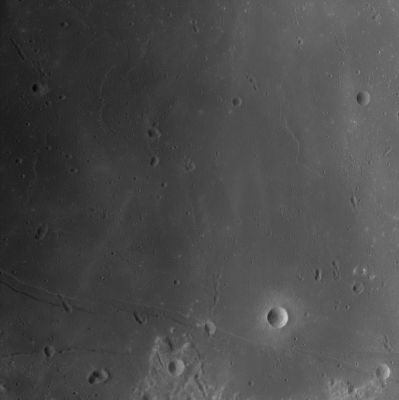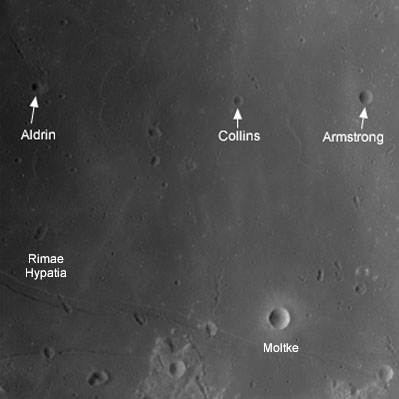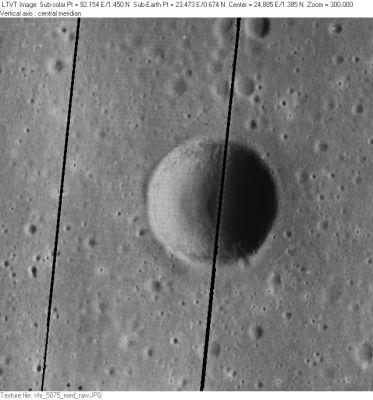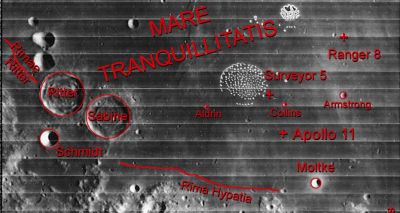Armstrong
Contents
Armstrong
(formerly Sabine E)
|
Lat: 1.4°N, Long: 25.0°E, Diam: 4 km, Depth: 0.67 km, Rükl: 35 | |
Images
LPOD Photo Gallery Lunar Orbiter Images Apollo Images
- Lunar Orbiter 2's frames 2081, 2082, and 2083 show Sabine E (Armstrong) near their upper right corners.
- The southern 3/4ths of Armstrong were captured on Lunar Orbiter 1's frames 1085, 1086, and 1087 (Armstrong is the large bowl-shaped crater near the upper margins of the three frames).
- Apollo 10's Hasselblad frame AS10-31-4536 shows an "upside-down" view of Armstrong (bottom of photograph) and Moltke (upper right corner). AS10-31-4537 shows Armstrong (bottom left), Collins (bottom right) and Moltke (the bright crater).
- Research Lunar Orbiter 1, 2, and Apollo 10 photographs: Danny Caes
- Apollo 11's Hasselblad AS11-41-6118 shows Armstrong close to right border of the frame above center - Nunki
Maps
(LAC zone 60C4) LAC map Geologic map LM map AIC map
USGS Geologic Map of the Sabine D region (I-618) (which also shows Sabine E (Armstrong) near the upper right corner of the map, and the landing sites of Surveyor 5 and Apollo 11 near the left margin).
Description
Description: Wikipedia
Additional Information
- Depth data from Kurt Fisher database
- Viscardy, 1985: 0.67 km
- The shadows in LO-V-075M confirm Viscardy's estimate. - JimMosher
- Image below shows the three craters named in honour for Apollo 11 astronauts Edwin Aldrin, Michael Collins, and Neil Armstrong.


Left: Credit: LROC mosaic image (WAC No.'s M119693062ME, M119686284ME, M119706645ME, M119699867ME) Click for larger view. Calibrated by LROC_WAC_Previewer.
Right: Reference image.
Nomenclature
- Named for Neil Alden Armstrong (August 5, 1930 - August 25, 2012). Neil A. Armstrong was an American astronaut, test pilot, university professor, and naval aviator. He was the very first person to have set foot on an extraterrestrial world (The Moon). His first spaceflight was Gemini 8 in 1966, for which he was the command pilot. On this mission, he performed the first manned docking of two spacecraft together with pilot David Scott. Armstrong's second and last spaceflight was as commander of the Apollo 11 moon landing mission on July 20, 1969. On this famous "Giant Leap for Mankind ", Armstrong and Edwin "Buzz" Aldrin descended to the lunar surface ("The Eagle has landed") and spent 2.5 hours exploring while Michael Collins orbited above.
- Armstrong (surname)
- This replacement name for a formerly lettered crater was among the list of 12 names of living astronauts and cosmonauts (six each) approved by the IAU in 1970 and published in Menzel, 1971.
LPOD Articles
Lunar 100
L90: "Armstrong, Aldrin & Collins" - Small craters near the Apollo 11 landing site.
Bibliography
Neil Armstrong and Apollo 11:
- "First Explorers on the Moon; the incredible story of Apollo 11" (in five parts). National Geographic (December 1969).

